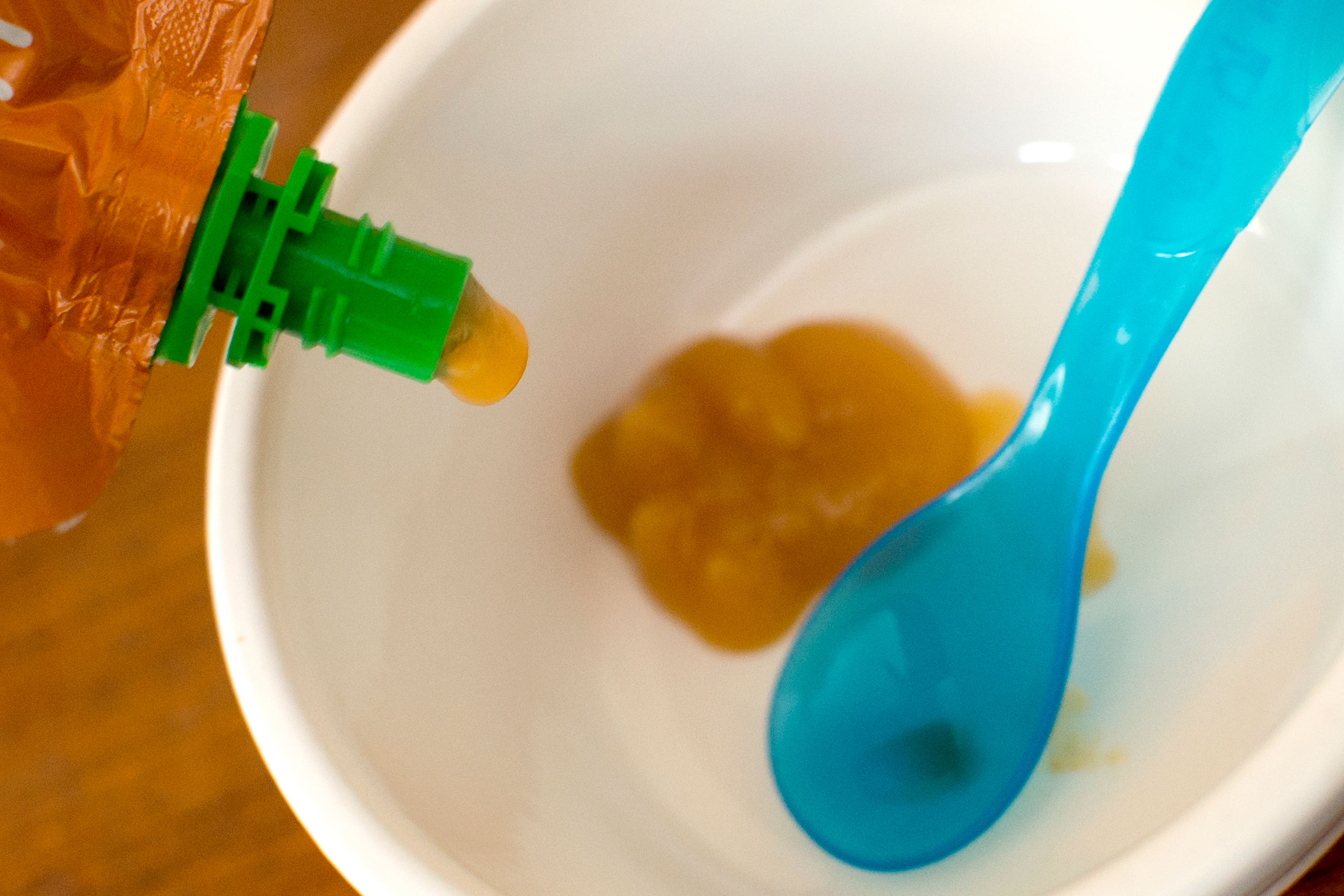Health organisations call for ‘overdue’ baby food and drink guidelines
The move follows ongoing concern about the amount of sugar in many shop-bought baby and toddler food products.

Health campaigners have called for the “overdue” release of new baby food and drink guidelines over concerns about the amount of sugar infants are consuming from popular shop-bought products.
Action on Sugar, along with 16 other groups including The Royal College of Paediatrics and Child Health, Obesity Health Alliance, British Dental Association and the World Cancer Research Fund, have signed an open letter to Health Secretary Steve Barclay urging the release of the guidelines to ensure that all food and drink products marketed to babies are nutritionally appropriate.
A letter has also been signed by baby food companies Babease, Little Dish and Little Freddie, calling for the release of the guidelines to create a level-playing field.
Action on Sugar said many baby food brands were already reducing sugars but there were still products marketed as suitable for infants and young children with unsuitably high levels of sugars.
Late last year, Action on Sugar analysed almost 100 baby and toddler breakfast products, finding that all of them included nutrition or health claims on their packaging and 86% used a “no added sugar” or “only naturally occurring sugars” claim, despite many adding sugar in the form of fruit or vegetable juices, concentrates, purees and powders.
Earlier last year a British Dental Association (BDA) study of 109 baby pouches aimed at children aged under 12 months found more than a quarter contained more sugar by volume than Coca-Cola, with parents of infants as young as four months being marketed pouches that contained the equivalent of up to 150% of the sugar levels found in the soft drink.
A survey of more than 1,000 UK parents with children aged six to 36 months old found 91% supported the Government in taking action to ensure all food and drinks available in the baby aisle were nutritionally appropriate according to NHS recommendations.
An unhealthy diet high in saturated fat, salt and sugar and low in fruit and vegetables is the biggest cause of preventable ill health globally
It is recommended that infants under the age of two should avoid sugar-sweetened drinks and food with added sugar. After this, free sugars should provide no more than 5% of their daily energy intake (approximately 14g).
Dr Kawther Hashem, campaign lead at Action on Sugar and research fellow at Queen Mary University of London, said: “An unhealthy diet high in saturated fat, salt and sugar and low in fruit and vegetables is the biggest cause of preventable ill health globally.
“Given this, all food and drink companies should act responsibly and commit to improving their products as part of Government and NHS guidance and provide peace of mind for parents when buying foods for their young children.”
A Department of Health and Social Care spokesman said: “We are developing guidelines for industry to improve the nutritional content of baby food and drink.
“More broadly, thanks to our sugar reduction programme, we have delivered dramatic reductions in the amount of sugar in foods eaten by children – including a 14.9% decrease in the sugar content of breakfast cereals and a 13.5% reduction in yogurts and fromage frais.”
Censuswide surveyed 1,004 UK parents of children aged six-36 months between November 2-3.